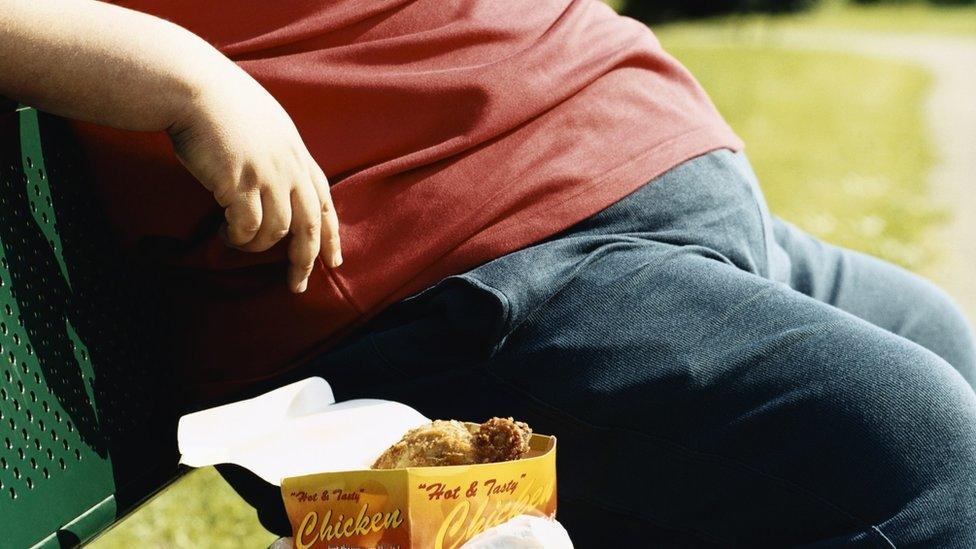Almost a quarter of P1 children at risk of being 'overweight or obese'
- Published

Almost a quarter of children in Scotland are starting school at risk of being overweight or obese.
A new National Statistics report revealed 22.4% of P1 pupils have potentially problematic BMIs.
The proportion of pupils entering education overweight has remained constant since the start of the century.
But the inequality between those in deprived areas and those who are not has become more apparent.
The Scottish government said maintaining a healthy weight throughout childhood is associated with many health benefits.
'Risk factors'
Children in P1 were measured for weight and height and their body mass index (BMI) calculated and then compared to growth data. They were then assigned to a healthy or unhealthy weight category and the unhealthy category was deemed "at risk".
According to the new document Body Mass Statistics of Primary One children in Scotland, external, more children in the most deprived areas were overweight compared to the least deprived parts of Scotland where the problem has decreased.
Dundee City has almost 27% of children in the overweight category while East Renfrewshire's figure is just under 16%.
Obesity in childhood is associated with a wide range of health problems such as risk factors for heart disease, type 2 diabetes, asthma, emotional distress and mental health difficulties.
Overweight and obese children are also at risk of remaining overweight or obese as adults.
The latest annual figures will disappoint health campaigners because they show little change over the past 16 years.
And they could boost calls from the Scottish government for action on junk food offers.
'Bold action'
Prof Linda Bauld, Cancer Research UK's cancer prevention expert, based at the University of Edinburgh, said: "When we're seeing so many children as young as four overweight and obese, it's clear the need for urgent action has never been greater.
"Supermarket multi-buy offers on junk food and sugary drinks are fuelling this alarming trend, encouraging us to stock up on unhealthy food.
"Introducing laws to restrict harmful price promotions would be one of the most effective ways to help families shop more healthily, helping us to stack the odds of not getting cancer in our favour."
She added: "More than four million sugary drinks are consumed by Scotland's children every week. Our toddlers are eating a million sweets a week. Many of these items are purchased on price promotions.
"It's welcome that the Scottish government has committed to halving childhood obesity by 2030. Two thirds of the public also back moves to restrict price promotions on foods that are high in fat and sugar.*
"Excess weight is Scotland's biggest preventable cause of cancer after smoking. It is a significant health problem and merits bold action."
'Consequences'
A Scottish government spokesman said: "The consequences of an unhealthy diet and physical inactivity are amongst the most serious public health issues facing many countries. We're determined to improve Scotland's diet, increase the number of people with a healthy weight, and support more people to be more active, more often.
"We're aiming to half childhood obesity by 2030 through a range of measures designed to help people make healthier choices, including proposals to restrict in-store promotions and marketing of food that is high in fat, sugar or salt but with little or no nutritional benefit.
"Already, children in two thirds of primary schools take part in the Daily Mile and 99% of schools are delivering at least two hours of PE every week."
- Published14 May 2018

- Published26 November 2018

- Published2 July 2018
